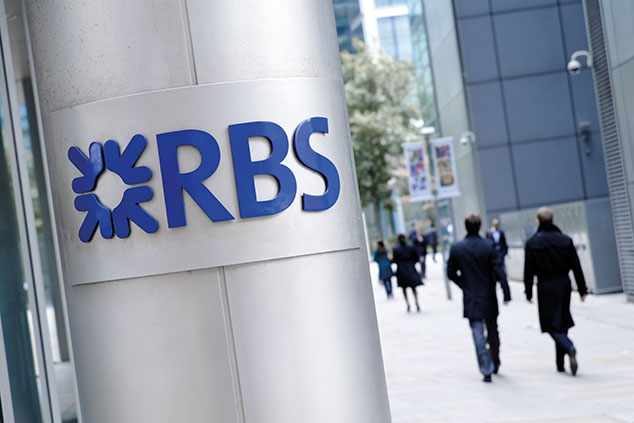
The shares trade on a near-10% discount to NAV and yield 3.2%, helped by the professional-services business accounting for about 40% of the pay-out. The investment record, a 58% return over five years and 36% over three, is decent, but well below its peers in the global sector of investment trusts. So why are the shares worth a look?
A generous dividend
With 75% of its investment portfolio in UK shares, LWDB doesn’t belong in a sector whose constituents have been boosted by much higher exposure to the out-performing US market. So it is seeking to move to the UK sector, where its performance would rank second among the combined “all companies” and “equity income” trusts.
The dividend is already generous, but the recent decision to allocate 75% of investment-management and interest costs to capital will add 20% to earnings, enabling a further rise. The potential increase of 35% will not happen all at once, but investors can expect dividend growth at least in line with the 9.2% of 2018 rather than the average of 4.5% of the last ten years. This dividend growth will be further enhanced by the accelerated growth in the professional-services business and in the income from the investment portfolio.
The portfolio is managed by Janus Henderson at a cost of just 0.3% of NAV (the total ongoing charges of LWDB are only 0.43%). For this modest cost, LWDB gets a first-rate team – the highly regarded veteran James Henderson and rising stars Laura Foll and Charlotte Greville. Their portfolio, £663m at the start of the year, is invested in about 130 stocks, of which the top-ten account for 24%.
About a third of the UK portfolio is in the FTSE 100, the rest mostly in mid caps. As in their other portfolios, the allocation to industrials is high but to consumer sectors low. A rising allocation to financial services, including the recently bought RBS and Direct Line, shows a contrarian streak. The team is happy with the high UK weighting, seeing it as a value opportunity. If this comes to bear, high UK exposure should no longer be a handicap to performance.
The professional-services business, established 130 years ago, provides advice, administration and management for pension funds, corporate trusts and other company entities, usually fulfilling a role stipulated by law. For seven years, the business marked time, but both revenue and earnings jumped by 9% in 2018. According to chief executive Denis Jackson, “clients loved us but shareholders were disappointed.” He saw a need to market more, developing better relationships with banks and boutique financial businesses, as well as with law firms.
Strong growth ahead
About two thirds of the business has a high degree of repeatability, and there is an impressive amount of new business, so Jackson is expecting revenue growth of “mid-to-high single digits” in 2019, perhaps supplemented by bolt-on acquisitions. A splitting of the business from the trust is unlikely owing to tax synergies, which apparently reduce the tax charge on the services business from 18.5% to 12%.
Growth is not reflected in a valuation of less than ten times earnings, nearly all of which can be distributed as dividends. A more realistic valuation would add 50p to NAV per share, increasing the discount of the shares to 15%. At present, the valuers are cautious, but that will change when growth is confirmed rather than projected. These shares are a bargain.
Activist watch
Merian Global Investors, a leading investor in Barclays, has voted against Edward Bramson’s bid for a Barclay’s board seat as “tension between the activist investor and the bank reaches boiling point”, says Emma Dunkley in The Times. Bramson’s fund Sherborne Investors owns more than 5% of the bank.
Yet Barclay’s doesn’t need “a hostile disruptor in its midst, arguing on false numbers against their execution of the existing strategy to improve returns, for his own short-term ends”, says Merian. Aviva Investors’ David Cumming, who has previously backed Bramson, has also said he would side with Barclays. The bank has accused Bramson of being “selective and misleading” in his description of the struggling investment banking arm.
Short positions…Woodford’s offshore blip
• The warm glow around alternative income funds that aim to rectify the shortage of affordable housing is starting to wear off, says Gavin Lumsden in Citywire’s Investment Trust Insider. Real-estate investment trusts Civitas Social Housing and Triple Point Social Housing in particular have caught the eye of investors, as they aim to increase the provision of specialised support housing.
Yet the sector’s new watchdog, the Regulator for Social Housing, has issued a string of negative judgements against the governance and financial failings it found in some of the housing associations to whom the funds lease properties. Civitas shares have “slumped” 11% since the regulator’s report was published on 4 April, while Triple Point has fallen 10%.
• Three of Neil Woodford’s stakes in unquoted private companies were suspended from the Guernsey stock exchange last Thursday, says Kate Beioley in the Financial Times. Over the past ten months the fund manager has listed his stakes in biotech company Benevolent AI, cold-fusion company Industrial Heat and technology investor Ombu offshore in an effort to keep the portfolio of his equity-income fund below the regulatory limit for unquoted stocks.
Stocks are usually suspended if “there are question marks over whether they have complied with the exchange’s listing rules”. Although the suspension may affect the fund’s unquoted threshold, it has no immediate impact on the investments within the fund.